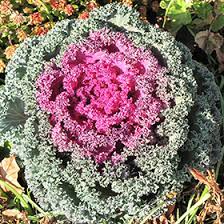
Taking care of our dear Mother Earth through something as simple yet vital as the food we eat. The planet is like our home, and just as we keep our homes tidy and welcoming, we must care for this beautiful Earth. A sustainable diet isn’t just good for the planet; it’s good for your health, too. Let’s dive into how you can embrace mindful eating habits to contribute to a greener, cleaner, and healthier world.
1. Understand What a Sustainable Diet Means
A sustainable diet is one that minimizes environmental impact while ensuring that you receive all the nutrients your body needs. It focuses on:
- Consuming plant-based foods.
- Reducing food waste.
- Supporting local and seasonal produce.
- Avoiding highly processed foods.
Such diets not only preserve natural resources but also promote biodiversity and a balanced ecosystem.
2. Shift Towards Plant-Based Eating
Plant-based eating is a cornerstone of sustainable diets. It’s not about becoming a strict vegetarian but about making plants the star of your plate. Here’s how to do it:
- Vegetables and Fruits: Fill half your plate with seasonal veggies and fruits. They require fewer resources to grow compared to meat.
- Legumes, Nuts, and Seeds: Lentils, chickpeas, almonds, and chia seeds are packed with protein and nutrients.
- Whole Grains: Brown rice, quinoa, and whole wheat are better for the environment than refined grains.
- Did you know? Producing one kilogram of beef requires about 15,000 liters of water, while a kilogram of vegetables uses only about 322 liters. See how choosing veggies over meat makes a big difference?
- 3. Reduce Your Meat and Dairy Consumption
- Meat and dairy farming contribute significantly to greenhouse gas emissions, deforestation, and water usage. I’m not asking you to give them up entirely, but moderation is key. Aim for:
- Meat-Free Days: Pick one or two days a week to go vegetarian.
- Lean Proteins: Replace red meat with chicken or fish, which have a lower carbon footprint.
- Plant-Based Alternatives: Try oat milk, almond milk, or soy milk instead of dairy milk.
- Every little step counts, my dear. Even small reductions in meat consumption can greatly reduce your environmental footprint.
- 4. Eat Local and Seasonal Foods
- Local and seasonal produce not only tastes better but also travels shorter distances, reducing the carbon emissions associated with transportation. Tips to embrace this habit:
- Farmers’ Markets: Visit your local market for fresh, seasonal produce.
- Grow Your Own Food: Even a small kitchen garden with herbs or vegetables can make a difference.
- Seasonal Awareness: Learn what grows in each season where you live and plan your meals accordingly.
- 5. Minimize Food Waste
- Food waste is a major environmental issue. The energy and water used to produce food are wasted when food ends up in the trash. Here’s how to combat this:
- Plan Your Meals: Write down what you’ll eat each week to avoid overbuying.
- Proper Storage: Keep your fruits and vegetables fresh by storing them correctly.
- Compost: Turn food scraps into compost for plants instead of throwing them away.
- Remember, even the peels and seeds can often be repurposed. Banana peels, for instance, make excellent plant fertilizers.
- 6. Limit Processed Foods
- Processed foods often require more energy to produce and come with excessive packaging that adds to landfill waste. To limit these:
- Cook meals from scratch whenever possible.
- Choose whole, unprocessed ingredients.
- Avoid items with excessive plastic packaging.
- You’ll find that homemade meals are not only healthier but also kinder to the Earth.
- 7. Choose Sustainable Seafood
- If you eat fish, make sure it’s sustainably sourced. Overfishing harms marine ecosystems, so:
- Look for certifications like MSC (Marine Stewardship Council).
- Avoid species that are overfished, such as certain types of tuna.
- Choose local fish varieties that are abundant and responsibly caught.
- 8. Hydrate Wisely
- While staying hydrated is essential, think about your beverage choices:
- Ditch Bottled Water: Use a reusable water bottle.
- Choose Tap Water: In most places, it’s safe, cheaper, and environmentally friendly
- Homemade Drinks: Instead of packaged juices and sodas, make fresh lemonade or herbal teas.
- 9. Support Ethical Brands and Farmers
- Be mindful of where your food comes from. Support brands and farmers that prioritize sustainability and ethical practices. Look for:
- Fair Trade Labels: Ensure workers and farmers are paid fairly.
- Organic Products: These are grown without harmful pesticides.
- Your purchasing power is a vote for the kind of world you want to live in.
- 10. Educate Yourself and Others
- Sustainability starts with awareness. Keep learning about sustainable practices and share your knowledge with friends and family. You can:
- Watch documentaries on sustainable eating.
- Follow blogs or social media accounts dedicated to eco-friendly living.
- Participate in community clean-ups or food drives.
- Every conversation you have can inspire someone to make greener choices.
- Q&A Section
- Q1. Can a sustainable diet be affordable?
- Ans: Yes, my dear! Focus on staples like beans, lentils, rice, and seasonal vegetables. These are often cheaper than meat and processed foods. Meal planning and buying in bulk also help cut costs.
- Q2. What if I live in a place with limited fresh produce?
- Ans: Frozen and canned vegetables are good alternatives, as they retain nutrients and have a longer shelf life. Look for options with minimal added salt or sugar.
- Q3. How do I convince my family to adopt a sustainable diet?
- Ans: Lead by example. Cook delicious plant-based meals and share your reasons for making these changes. Gradual adjustments are more likely to be accepted than sudden overhauls.
- Q4. Are organic foods always better?
- Ans: While organic foods avoid synthetic pesticides, their environmental impact depends on farming practices. Prioritize local, seasonal produce—organic or not.
- Q5. How does reducing food waste help the planet?
- Ans: Wasted food means wasted resources like water, energy, and labor. It also contributes to methane emissions in landfills. By reducing waste, you conserve resources and cut down greenhouse gases.
